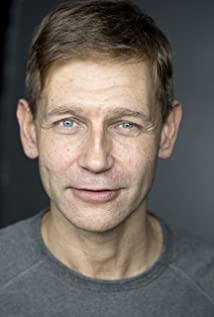Liang Hulu has no good people in his mind. In his mind, people are not good for nothing, but people must be. Go well for one purpose, complete one task at a time, or close a loophole.
The old thought, Liang Calabash is not to blame, the world is so big, but Liang Calabash did not give Liang Cala a pure, non-covetous good.
I highly recommend "Rewind Life" adapted from a true story. The protagonist of the story Stuart is a vagrant on the streets of Cambridge, and the biographer is a volunteer who takes in the vagrant. A rescue campaign connects the two. The biographer became interested in Stuart and wanted to make a biography for him. Alcoholic, drug-addicted, and violent Stuart thought he had nothing to write about, but he unintentionally proposed an idea to let everyone know why he became what he is now, who or what made the innocent Stuart a group despised by society.
The story unfolds with two clues, one is the macro rescue movement, and the other is the explanation of the changes in Stuart's life. Just when we thought to find the reason, that is, when Stuart was raped by his own brother at the age of nine, the film changed the root of the seemingly bizarre but reasonable changes through the protagonist himself.
It turned out that Stuart's sister had also been sexually assaulted by her brother, but she had the same life as a normal person and was about to get married.
The biographer asked Stuart if he had another chance to change one thing in his life, what would he choose?
Stuart said that in the afternoon of elementary school, he was bullied by his classmates again and hid in his home, but his stepfather forced him to go to the door to get rid of those classmates. He used his fist to gain the upper hand in a fight for the first time, and that was when violence entered his heart. He entered a children’s school, a youth camp, and finally an adult prison.
He said that no one wants to listen to him talking about things that are important to him, and the growing environment since then has given him no chance to get better. No help was given to the nine-year-old boy, the sound social system and the parents around him, even if he listened. Violence is his only tool to deal with this society, against the violence of the entire system and even the hearts of the people. The 33-year-old Stuart is the same as the 16-year-old Liang Hulu. The society has never given them a pure, non-covetous goodness, so how can they pray that they are so-called normal.
The warmth of the film lies in the biographer. He brings warmth and love to Stuart, making him believe in people, have goals, and smile like a person from the heart. In the end, Stuart committed suicide. After being introspected with love by the biographer, he was often sad and hopeless. He burned with fire or cuts with a knife, and the violence that took root in his heart would eventually fade away with the destruction of his body. Only in this way could he completely complete his last transformation.
In my opinion, this ending is precisely the greatest tragedy, an irony to us who pretend to be normal people who are so narrow-minded. The system seems to protect everyone's rights, but in fact it is to draw a cage to keep those people and things that are threatening to us together. There is no element of dignity in the air there.
A friend posted a status on Weibo, the last sentence is, only believe in people. To borrow, the world is too dark, with the help of the glimmer of human nature, we help each other through the winter.
View more about Stuart: A Life Backwards reviews











